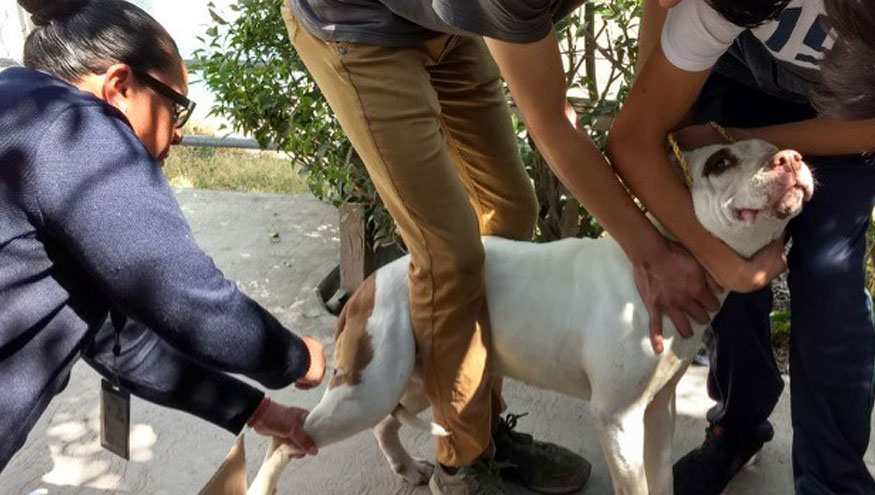26 April 2022
Summary
Mexico is a leading example of rabies elimination through a One Health approach, making mass dog and cat vaccination a public health responsibility under the Ministry of Health. In the 1980s Mexico recorded some 600 human rabies cases. By 2019 it was declared free of human rabies by WHO.

Credit: ©Verónica Gutiérrez Cedillo
Pet vaccination as a public health issue
In 1990, with guidance from PAHO, Mexico started its first nationwide campaign of mass dog and cat vaccination. The program still has two main strands: free dog and cat vaccination and provision of post-exposure prophylaxis for anyone suspected of a bite from a rabid animal.
A One Health approach has guided government efforts, with rabies a priority in health budgets. The Health Ministry has overall responsibility for canine rabies control and prevention in humans and coordinates all work with other federal agencies, state and municipal governments, NGOs and academia.
On average around 18 million free vaccine doses are administered annually through the Health Ministry with the help of student and community volunteers, health workers, state and municipal governments and the armed forces, reaching around 80% of dogs and cats. The system for delivering rabies vaccines grew out of cold chain management for human vaccination programs. The free pet vaccinations are purchased by each State Health Services Rabies Program and delivered across all 32 states of Mexico during national vaccination weeks, starting in March, aiming to reach around 80% of animals, with a follow up week in September to vaccinate puppies and kittens. Mass media (radio, TV) is used to promote the vaccination weeks, as well as social media.
In 2019 Mexico became the first country in recent years to receive WHO validation for eliminating dog-mediated human rabies as a public health problem. The last human rabies case was reported in 2005 and Mexico is now on the way to being declared free of canine rabies as well, with no canine rabies (variant 1) cases reported since 2016.
All states across the country are now required to carry out targeted dog vaccination, surveillance and testing of suspected animals. These steps are augmented by molecular sequencing to identify different antigenic variants of the rabies virus.
Recipe for success
Dr Veronica Cedillo, head of Mexico’s National Rabies Control Program, says that success has come from a mixture of political will, sustained program implementation, application of timely, proven strategies and surveillance, and gradually shifting responsibility and leadership for rabies control from the national to state level.
Mexico is still reporting cases of rabies in wildlife. The most recent reported cases were of 2 cats in Yucatan in 2021 that were infected with a wildlife variant, possibly from coatis – a native mammal. Mexico will begin a trial of oral canine rabies vaccination to counter this emerging problem.
Maintaining rabies-free status
To maintain its rabies-free status, Mexico has introduced pet animal travel and movement restrictions. Every dog or cat moving into or out of the country requires an up-to-date vaccination certificate and rabies antibody checks.
The role of the state remains critical to sustaining Mexico’s canine rabies controls. Mexico still holds national rabies vaccination weeks, and the government maintains a variety of alliances and collaborations with different actors to support canine rabies initiatives.